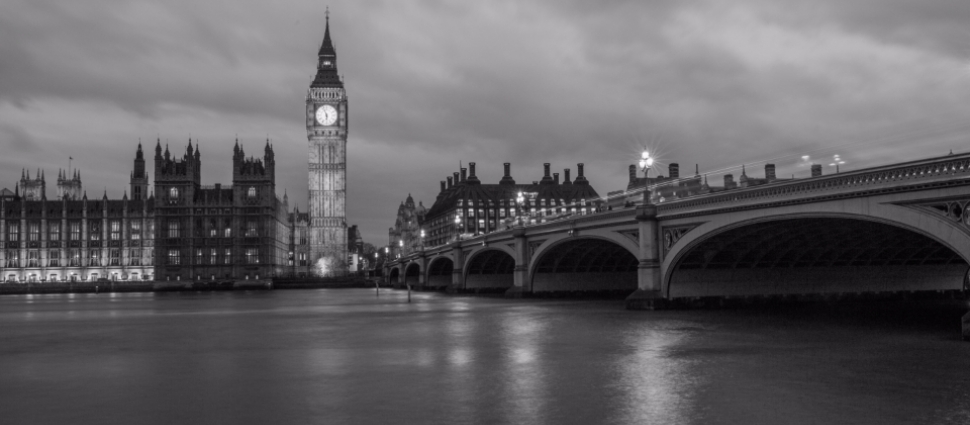Hannah More and Her Lasting Influence on Education and Christian Service

Hannah More and Her Lasting Influence on Education and Christian Service
She has been described as the most influential woman in the British abolitionist movement – in fact, one of the most important women in 18th-century Britain. After her death in 1833, the Christian Observer dared to say: “What William Wilberforce was among men, Hannah More was among women.”
But her influence went beyond the sphere of social reforms. Her emphasis on education, particularly for the poor and for women, with her clear specifications on its goals, had a tremendous impact in Western society and in the church.
A Talented Woman
Hannah More was born on 2 February 1745 at Fishponds, north of Bristol, the fourth of five daughters. Her father Jacob, a schoolmaster, made sure that his daughters received a good education.
From the start, Hannah displayed an exceptional intelligence. By her late teens, she was already a teacher at the boarding school she had attended – a school her father had started and her sisters were managing. A lover of theatre, she wrote her first play, A Search for Happiness, before she turned eighteen. The play was later published and widely read.
In 1767, Hannah accepted a proposal of marriage from a wealthy country gentleman, William Turner, who was twenty years her senior. Perennially undecided, Turner postponed their wedding three times until, in 1773, he broke their engagement.
British law included provisions for such circumstances, since a long engagement took a woman beyond the normal marriageable age. Initially, Hannah declined the annuity offered by Turner but she eventually accepted a smaller amount, £200 – still a large sum in those days. Since this allowed her financial security and independence, Hannah decided not to marry.
By then, she was still bent on writing for the theatre. During her many trips to London, she came in contact with important artists, authors, actors, and politicians. Her most important friendship was with actor, playwright, and producer David Garrick, who sponsored and directed her highly successful play, Percy. From all indications, Hannah was on her way to stardom.
She soon became disillusioned with the empty lifestyle of the theatrical world. After Garrick’s death, she began to detach herself from it.
Finding her Calling
In London, Hannah attended the church pastored by the renowned John Newton, whose writings she had come to admire. After conversing with him, she returned home with tens of copies of his sermons. She continued to correspond with him for the rest of his life.
Through Newton, she also met the young William Wilberforce, who encouraged her to use her talents for the good of others. He also introduced her to the Clapham community, a group of socially minded Christians, which included many leaders in the abolition movement. They influenced her commitment to evangelism and assistance to the needy. Apparently, she was the first woman involved in the abolitionist movement. Her contribution was mainly through pamphlets and poetry. She also sponsored the publication of Olaudah Equiano’s account of his life as a slave, and promoted the boycott of slave-grown sugar.
But her main focus was on education. Together with her sisters, she opened a Sunday School for the poor. At a time when there were no public schools, they provided both biblical instruction and basic general education. One school led to another until, within ten years, they had sixteen school in operation.
Hannah wrote many of the books used in the schools. Against the mores of her time, she encouraged equal education for boys and girls. This meant that, while girls had equal instruction in the academic subjects, boys were included in knitting and sewing lessons.
She also cared deeply for her students and their families. She advocated for a method of teaching that was engaging and inspiring. “Though serious instruction will not only be uninteresting but irksome if conveyed to youth in a mere didactic way, yet if their affections are suitably engaged, their hearts, so far from necessarily revolting, as some insist they will, often receive the most solemn truths with alacrity,”[1] she said.
Her care for her students was mirrored in the dedication of her friends and the teachers she employed. For example, the correspondence between More and her friends William and Barbara Wilberforce are full of expressions of mutual, sincere interest in the lives of each student.
On the Education of Women
Her views on the education of women was, in fact, her distinctive trait. This subject had been recently covered by a more radical reformist, Mary Wollstonecraft. While More professed not to have read Wollstonecraft’s writings, she said basically (and sometimes verbatim) the same things: women should be encouraged to pursue a thorough education. But both her premises and her goals were radically different.
More based some of her motivation on the recent events in the French Revolution – a rebellion the British feared might spread to their island. Politically conservative, More believed that, by denying women a substantial education, British men were curtailing their ammunitions against an ideology they deemed as detrimental.
In other words, if the ideals of the French Revolution were really as damaging and threatening as many British men believed, shouldn’t they equip half of the adult population to face them in an informed and responsible manner, rather than limiting them to embroidery and the discussion of romantic tales? Those who followed this course, she said, “refined elegance into insipidity, frittered down delicacy into frivolousness, and reduced manner into minauderie.”[2] (She was, of course, speaking of middle and upper-class women, since the poor received no education at all – something she was also set to rectify).
Besides, a good education could benefit the family (and society) in other ways. It would give women better tools to manage their homes and raise their children, and would even make them better companions to their husbands.
More’s main work on this subject was Strictures on the Modern System of Female Education, a treatise in two volumes, published in 1799). It was an immediate bestseller. In this, she opposed two contrasting views of her time: those depicting women as merely sentimental creatures and those promoting an aggressive revendication of one’s rights.
Those who followed the first tendency, she said, “turned all the force of their talents to excite emotions, to inspire sentiment, and to reduce all moral excellence into sympathy and feeling. These softer qualities were elevated at the expense of principle; and young women were incessantly hearing unqualified sensibility extolled as the perfection of their nature.”[3]
The second tendency, instead, “shifted the scene, and at once produced the bold and independent beauty, the intrepid female, the hoyden, the huntress, and the archer; the swinging arms, the confident address, the regimental, and the four-in-hand.”[4]
Choosing the middle path, More reminds her readers that, “while we bear in mind that helplessness is not delicacy, let us also remember that masculine manners do not necessarily include strength of character nor vigour of intellect. Should we not reflect also, that we are neither to train up Amazons nor Circassians, but to form Christians? that we have to educate not only rational but accountable beings? and, remembering this, should we not be solicitous to let our daughters learn of the well-taught, and associate with the well-bred?”[5]
For More, a Christian education provided tools to be of greater service to others.
Moral Writings
Like many people of her time, More was concerned about the apparent lack of piety of most professing Christians. A contemporary of George Whitefield and John and Charles Wesley, she shared their passion for revival, although she stayed faithful to the Church of England until her death. She was particularly impressed by Newton's Cardiphonia (or, The Utterance of the Heart). In 1788, she published anonymously an exhortation to the British high society Thoughts on the Importance of the Manners of the Great to General Society, another bestseller (the second edition sold out in six days and the third in four hours. As popular as these books became, some criticized her for being a killjoy.
In spite of the moralistic tone of these works, however, More was conscious of her unworthiness before God. For example, when the renowned journalist and politician John Wilkes died, she wrote in her diary, “Lord, who hath made me to differ; but for thy grace, I might have blasphemed thee like him. In early youth I read Hume, Voltaire, Rousseau, etc. I am a monument of mercy, not to have made a shipwreck of my faith.”[6]
Last Years and Legacy
During her last years, Hannah had to deal with illness and death, first with her two sisters, and then with her own failing health. When the last of her sisters died in 1819, she remained alone in the Barley Wood home where she had lived since 1801. In 1828, however, her friends persuaded her to move to Clifton, where they could care for her. She died there on 7 September 1833. She was eighty-eight years old. On the day before she died, she cried out: “Joy!” That was her last word.
More’s historical relevance hasn’t been fully recognized. Most scholars credit Woolstonecraft for the advances in women’s education, but some believe that More had an even greater influence, as she gave Christian readers strong motivations for change. For example, her Strictures on the Modern System of Female Education inspired a whole generation of women to pursue education in order to serve their neighbors in Christian love.
For example, it was that book that first moved Ann Hasseltine, future wife of Adoniram Judson, to pursue education in order to serve others as a teacher. “As Providence has placed me in a situation of life where I have an opportunity of getting as good an education as I desire, I feel it would be highly criminal in me not to improve it. I feel also that it would be equally criminal to desire to be well educated and accomplished from selfish motives, with a view merely to gratify my taste and relish for improvement, or my pride in being qualified to shine.”[7]
Her words were a clear reflection of More’s educational views. And she was not the only one. More’s writings were read and treasured by missionaries in various stations, and led countless Christian women to look beyond the shallow expectations of their age and devote their talents to greater service to others.
[1] Hannah More, Strictures on the modern system of female education, Vol. 1, 236-237 https://quod.lib.umich.edu/e/ecco/004902140.0001.001/1:6?rgn=div1;view=f...
[2] More, Strictures, Vol. 1, 66
[3] More, Strictures, Vol. 1, 67
[4] More, Strictures, Vol. 1, 68
[5] More, Strictures, Vol. 1, 69
[6] William Roberts, Hannah More, Memoirs of the Life and Correspondence of Mrs. Hannah More, Volume 2, 31
[7] Memoir of Mrs. Ann H. Judson, 33





